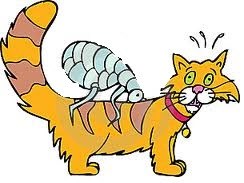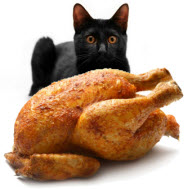Cats are fast becoming one of the Uk’s most popular pets. Some people ‘acquire’ these cheeky moggy’s,
others make the conscious decision to purchase one. Whatever the reason, the decision should not be made lightly. Contrary to popular belief, cats are not as self sufficient as what some people believe.
They still require the same level of care and attention that most animals do, However, to some degree they are independent.
Cats need somewhere warm and dry to sleep, constant access to water, daily feeding as well as toys to play with, not forgetting lots of TLC. They also require litter trays or outside access so they can use the loo!
Most people’s first experience of owning a cat is from a kitten, Caring for a kitten requires lots of patience and understanding.
Below is a general guide for first time owners.
Vaccination
Kittens require vaccines which are done initially from nine Weeks of age.They require a second inoculation (a booster)
three weeks later. After this, Vaccines should be given yearly. Regular vaccines ensure your cat is protected against illnesses such
as cat flu, Feline enteritis and Leukaemia.
Neutering
Neutering refers to the removal of an animals’ reproductive organ. (testicles or ovaries and uterus)
General advice is to not allow your kitten or cat outside until he/she is neutered. Male cats can often stray when they are not neutered and females can become pregnant from as young as six months old. Neutering and can prevent all of these, as well as minimising the risk of some potential life threatening diseases. It usually takes place at around six months of age or sometimes sooner depending on the circumstances. Your cat will need to come to the surgery for the day as he/she will be having an anaesthetic.
Please note that male cats undergoing castration will need to be kept quiet and indoors for up to 3 days after their procedure. Females undergoing Spaying also have to remain quiet and stay indoors for up to fourteen days. Your veterinary practice team will be able to advise you on this in more detail
 Worming and Flea Control
Worming and Flea Control
Cats and kittens require worming at regular intervals. Usually this is done every month until your kitten is six months old. After this, treatment should be given every three to four months on -going. There are some worm species which can be passed from cat to humans so it is extremely important to keep up to date with your cats treatment.
Like worming, your cat should also receive regular flea treatment. Fleas create a problem all year around - so don’t be fooled in thinking they are just about in the summertime. Most flea controls are applied monthly, However, this may differ depending on what product is used.
There are many different products available to owners for worms and fleas. Purchasing these from your veterinary practice ensures that you are getting one of the most reliable products around, as well as advice on how they should be administered.
Microchipping
Slightly Smaller than a grain of rice and no more painful than an injection, Microchipping is a cheap invaluable way of indentifying your cat should he or she go missing. No anaesthetic
or sedation is required meaning it can be done in a routine vet or nurse visit.
A small (micro) chip is implanted in the back of the neck under the skin between the shoulder blades and contains a unique set of numbers which are in turn stored on a national database. Your cat will not be aware of its presence once the chip is inserted and it can be done at any age.
 Diet
Diet
Finding the right diet for your kitten or cat can take a little while at first.Kittens should be fed on kitten food until they are either a year old or neutered.
They should then progress on to senior/ mature diets from the age of seven – this will depend on the choice and type of diet.
Both wet and dry food are fine for your cat but dry food may prevent plaque build up on your cats teeth, thus reducing the chances of a dental taking place at a young age.
Cats are known as obligate carnivores – to you and me this means they must have ‘meat’ in their diet in order to survive. This doesn’t mean they need fresh meat every day.
A good quality cat food will provide all of your cats nutrients as well as producing a silky glossy coat, good vision (especially important for those mouse hunters) and healthy joints. It is not advisable to feed your cat on human food, there is simply not enough nutritional support in our food to cater for their needs.
A treat now and then is fine, we all like to treat ourselves once in a while don’t we. However, tuna, chicken, ham and cheese and all those other tasty things we like to spoil our pampered pussy cats with, can result in weight gain (more severely-obesity) as well as other health problems.
Insurance
As treatment and medicine becomes further advanced, with this comes greater costs.
Pet insurance over the last decade has become more popular. A staggering 46% of households now have pet insurance whereas only 35% of us have insurance for ourselves.
There are a range of pet insurance companies. As your veterinary practice, unfortunately, we cannot advise one particular company to go with.
However, the information we can advise will ensure you get the best cover available- whichever insurance company you choose.
- Be certain that the amount of veterinary cover is adequate – over time a single illness can cost hundreds of pounds.
- Check that there is no time limit on how long you can claim for each illness. Chronic conditions can go on for life not just twelve months.
Items such as vaccination, neutering, worming and flea control will not be covered. Most insurance companies will not pay for dentistry work either.
The information detailed above only serves as a guide. If you are concerned about your cats wellbeing – please telephone the surgery where one of our qualified nurses will be able to assist you.